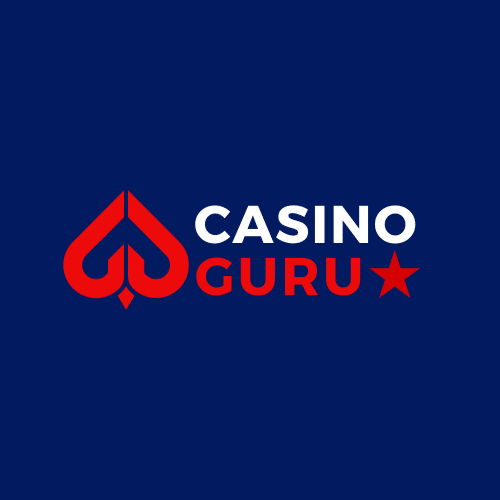When it comes to video games that define dark fantasy, Diablo stands at the top of the infernal mountain—fiery hellscapes, cursed loot, demonic overlords, and just the right amount of RNG pain to keep you hooked. It’s not exactly where you'd expect to find a slot machine, but as it turns out, Diablo’s aesthetic and mechanics are fueling inspiration for a growing trend in online gambling: casino slots that feel like they crawled straight out of Sanctuary.
These Diablo-inspired casino games don’t officially carry the Blizzard seal, but let’s be honest—they don’t really need to. With flaming swords, ancient runes, skeleton warriors, and a soundtrack that practically whispers “click spin or perish,” the influence is obvious.
So, how exactly does a slot machine get Diablo-fied? And why are these gothic reels so appealing to players who usually spend their time chasing loot goblins instead of jackpots? Let’s step into the darkness—and spin the wheel.
RNG: The Devil’s Playground
The beating heart of both Diablo and slot machines is the Random Number Generator. Whether you’re opening a cursed chest in a dungeon or pulling the lever on a fiery slot, your fate is in the hands of a math-loving gremlin behind the curtain.
In Diablo, you kill demons for a shot at rare loot. In slots, you click spin and hope for a winning combo of arcane symbols and glowing icons. It’s the same thrill—the unpredictable payout, the gamble of time (or coins), and that sweet, sweet serotonin when luck finally goes your way.
That’s what makes Diablo such a natural muse for slots. Players are already conditioned to grind for rewards. Casino slots just cut out the demon-slaying and go straight to the reward mechanic—with a real-world financial twist.
From Tristram to the Reels: What Makes a Slot Game Feel Like Diablo?
Slot developers are leaning into that dark fantasy vibe in a big way. While these games don’t carry the Diablo name, they tap into the same visual and thematic language:
-
Hellish backgrounds with lava rivers and gothic cathedrals
-
Sinister soundtracks with eerie whispers and booming war drums
-
Symbols like skulls, spellbooks, runes, cursed weapons, and glowing portals
-
Boss bonus rounds that mimic dungeon fights, often requiring multiple spins to “defeat” an enemy and unlock treasure
It's like someone took the essence of Act IV and said, “You know what this needs? A jackpot.”
And it works. These visuals, combined with a risk-and-reward mechanic nearly identical to looting a Diablo boss, create an immersive experience that speaks directly to the same kind of player mindset.
Why Diablo Players Are Drawn to Dark Fantasy Slots
It’s not just the aesthetics. There's a deeper, more psychological overlap. Diablo players already thrive on risk, calculation, and chance. Whether it’s re-rolling stats, gambling with Kadala, or farming an area for the fiftieth time just in case this time it drops a unique—these are the same mechanics slots are built on.
That’s why many experienced players looking to branch into the world of online gambling start by seeking out familiar styles and themes. Sites offering guides to the top payout online slots often include games that lean into fantasy settings, particularly those with darker tones. It's not just about winning—it's about feeling like you’re part of something epic while doing it.
Slot Mechanics Inspired by Dungeon Crawls
Some modern slot games inspired by titles like Diablo are far more interactive than the traditional “spin and hope” formula. Here’s how they bring a little dungeon crawl magic to the reels:
-
Progressive quests where each spin uncovers parts of a map
-
Unlockable features like “secret rooms” that open bonus rounds
-
Mini-boss fights, where combos “damage” a demon or dragon for more rewards
-
Inventory systems, tracking “artifacts” you collect during gameplay
This gamified structure keeps players engaged longer and gives a sense of progression—even if you’re technically still just clicking a button and watching symbols line up.
But Is It Safe to Bet with the Demons?
The fantasy vibes might be fire-and-brimstone, but it’s worth taking a serious look at what lies behind the flames. Just because a game looks like Diablo doesn’t mean it plays fair.
That’s why it's important to stick with licensed platforms and review sites that evaluate the important stuff: payout percentages, volatility, bonus frequency, and user experience. Trustworthy sources, like those offering top payout online slots, help players avoid the actual soul-sucking entities—scammy slot platforms and rigged software.
Diablo may be full of fallen angels and cursed dungeons, but even Mephisto wouldn’t stoop to the level of an unlicensed online casino.
Could Blizzard Make a Diablo Slot Game?
It would certainly be an interesting twist. Blizzard already dabbled with real-money mechanics in Diablo III’s Auction House, and with the rise of in-game purchases, microtransactions, and mobile titles like Diablo Immortal, a branded slot doesn’t feel completely out of the question.
That said, an officially licensed Diablo casino slot would be a legal and marketing gamble. Blizzard has always walked a careful line when it comes to real-money gaming, and slot machines are heavily regulated worldwide. Still, if it ever happened, you can bet the bosses would be horrifying, the music terrifying, and the payouts... hopefully better than Kadala’s.
Know Your Odds: Not All Evil Is Created Equal
Diablo teaches players to respect difficulty levels. Hell mode isn’t for the faint of heart—and neither are high-volatility slots. That’s why it’s essential to learn how different games work before investing time or money. Some slots pay often but small; others are stingy but capable of massive wins.
Whether you’re looking for fast-paced action or chasing a jackpot worthy of Tyrael’s blessing, finding the right game is key. Platforms that offer lists of top payout online slots give players a solid starting point, especially if you want more than just great visuals—you want the best odds too.
Conclusion: Spin to Win, But Don’t Lose Your Soul
Diablo may have started as a dark, moody dungeon crawler, but its DNA has reached beyond gaming. Today, its themes and mechanics influence everything from storytelling to slot machine design. While Blizzard isn’t in the online casino business (yet), others have captured that infernal essence and turned it into something... oddly fun.
Diablo-inspired slots aren’t just eye candy—they’re familiar, immersive, and built around the same roll-of-the-dice excitement that defines the franchise. But just like in the game, not every chest contains gold, and not every boss is beatable.
So whether you're battling Baal or spinning reels to summon three flaming skulls, just remember: stay smart, watch your stash, and maybe check a few reviews before entering the dungeon.































